It’s become unavoidable to discuss anything PR related without stating how drastically the industry has changed in 2020. Pivot, impact, and adapt are this year’s buzzwords.
Alas, COVID-19 and the subsequent lockdown has forced us all to change tact. Even as a marketing agency specialising in B2B tech and telco, onebite too has pivoted, adapted and felt the impact of traditional events going virtual, cancelled conferences, and general unease.
Thankfully, it’s not all doom and gloom. Many PRs and brands have found innovative ways of communicating during the pandemic, and the most talked about PR is centred around storytelling. This focus has been particularly make-or-break for many brands during COVID-19, as advocacy precariously balances on the edge of a bad tweet or news of a dodgy investor connection, as seen recently with plant-based milk brand, Oatly.
A company that can effectively connect its brand with what’s happening in the real world can find itself propelled into wider discourse with increased awareness, while still successfully pushing the right messaging.
Earlier this year, Sinch, a cloud-based communications platform, launched the Text for Humanity campaign. The business objective was to raise awareness and promote the brand’s technology to business leads, though it soon evolved into something far more politically charged – particularly as we entered lockdown and became even more dependent on digital communication.
One of Sinch’s solutions helps brands connect directly with their target customers through SMS, WhatsApp, etc., and also supports texting and voice calling for brands like Facebook and Google. As a company that facilitates conversation across the globe, Sinch was all too aware of the darker side of online communication and its link to mental health – several studies have suggested prolonged smartphone and social media use can result in depression and anxiety.
Sinch responded to this insight with its campaign – using its platform and technology to tackle online negativity with Text for Humanity, a texting switchboard that connected strangers across the globe with positive messages. The format was simple: send a positive message using the Sinch switchboard, get a positive message in return. The messages were delivered as brightly coloured visuals to reinforce the positive theme and also increase shareability – which helped to propel the campaign out of B2B and reach the general public.
The campaign launched in partnership with Mental Health America on Blue Monday, allegedly the most miserable day of the year. It’s worth noting that many PR teams will avoid communicating anything brand-wise on Blue Monday for fear of losing valuable messaging in a sea of oversaturated stories. This wasn’t the case for Text for Humanity. The campaign grew organically through earned placements with top trade and consumer titles ranging from Marie Claire to Forbes, and even an (unpaid) endorsement from Stephen Fry to his 12million followers. The campaign saw Sinch’s web traffic increase by 176 per cent, organic search increase by 15 per cent, and to-date, 83,000 positive messages have been sent from its switchboard.
Following the COVID-19 outbreak and lockdown, the campaign was extended – pivoted, if you will – to allow users to send a positive message to frontline workers. Now nurses, doctors, delivery drivers and grocery store staff – those performing risky but essential jobs that keep society moving forward – could receive a much-deserved message of gratitude from a stranger.
Why is this so important? From a brand awareness perspective, it’s a no-brainer. The already successful campaign could easily adapt (there it is again) to the COVID-19 context and heighten its already emotionally powerful purpose of connecting strangers with positivity. By allowing users to either identify themselves as key workers or send a positive message to one as thanks for their brave work, Text for Humanity could live on and retain relevance – and still does to this day.
Yet this adaptation goes beyond maintaining brand awareness during the pandemic. It’s no surprise that Mental Health America’s screening numbers have been growing since the beginning of the pandemic. Between January and April 2020, MHA saw a 70 per cent increase in anxiety screenings and a 64 per cent increase in depression screenings. In the UK, things weren’t so positive either. The Office of National Statistics recorded that 47 per cent of adults had reported high levels of anxiety between the pandemic’s peak in March and April.
Amidst increased uncertainty and anxiety, the campaign could help remind the world of the importance of positive connections.
The Text for Humanity campaign had a social purpose beyond driving brand awareness. Sinch took it’s established technology and reimagined it for good, and then reimagined it again for good measure to send a little positivity back into the world – one message at a time.
Visit https://www.textforhumanity.com/ to find out more about the campaign and send a positive message to a stranger.
If you’d like further information or are interested in getting help from our experts, please get in touch at hello@onebite.co.uk




